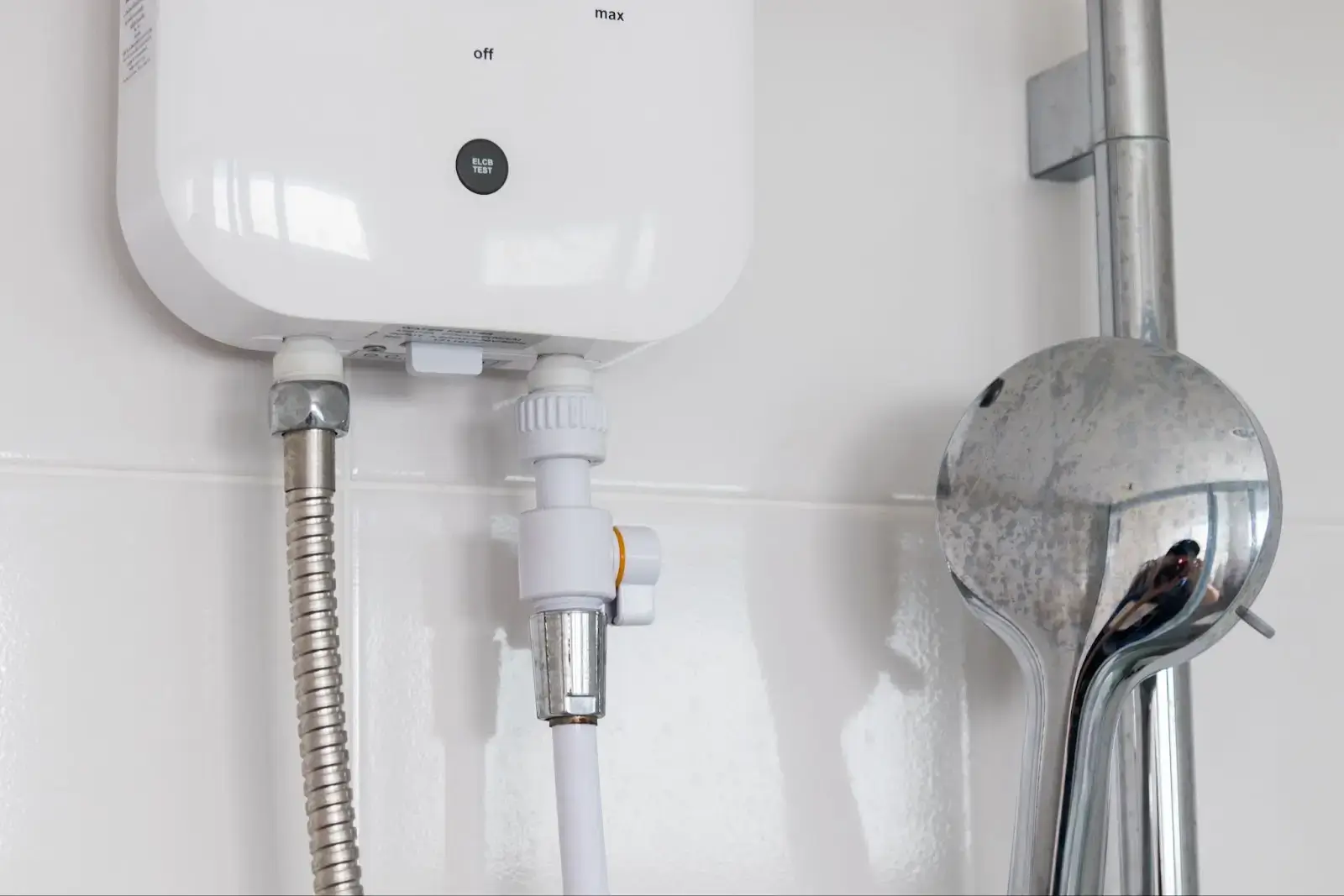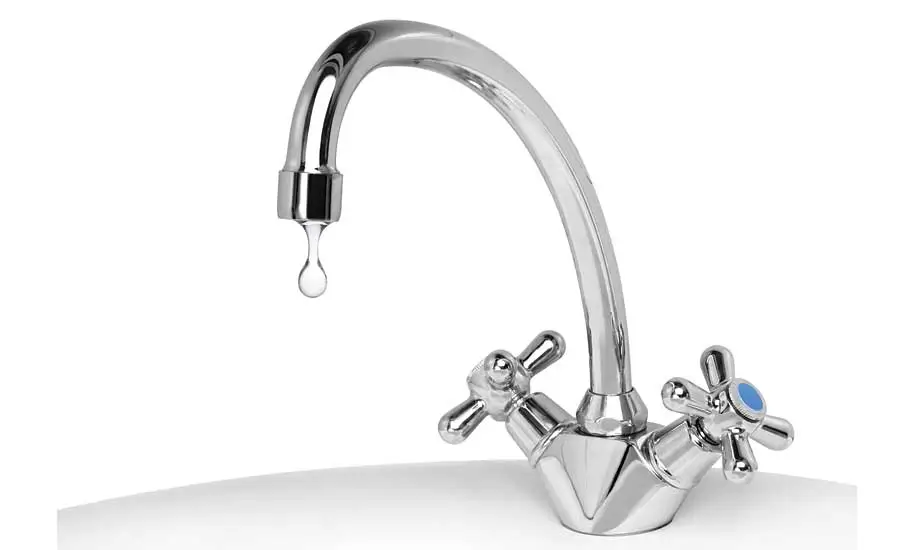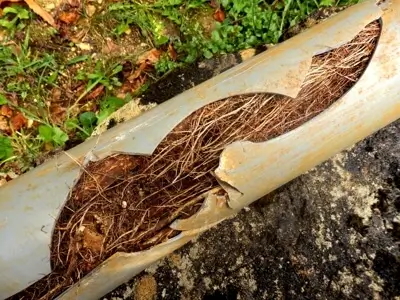Where is this leaking water coming from? Is it coming from my furnace or air conditioner? Is it dangerous?
Why would my furnace and air conditioner be leaking water anyway?
Before we dive into the deep end, let's make sure you are dealing with a leaky furnace.
Are You Experiencing a Furnace Leak?
A furnace leaking water will have more than a few indicators. A puddle in your living room or anywhere else in your house isn't all you may experience.
If leaking water comes from your furnace or other air conditioning system, it should be directly under its air vents. A water leak from air handlers should also look a little murky or cloudy.
It may also be accompanied by a musty smell, possibly with particles floating around.
If your furnace is leaking water, you might have already experienced the effects of its malfunctions without knowing it.
Have you felt uneven temperatures or heard unusual noises from your furnace lately? In that case, your furnace is leaking water and needs repair.
An HVAC professional needs to know what kind of furnace they will be dealing with to gather the right equipment. Companies will also dispatch the right expert HVAC technicians to help you solve the problem more efficiently.
Get to know what kind of furnace you have.
What Kind of Furnace Do You Have?
A standard efficiency furnace only has a primary heat exchanger with a non-condensing and high-pressure flue stack. It is less likely to condensate enough to lead to a condensation leak.
However, its primary heat exchanger might generate more condensation if you have a high-efficiency furnace. A high-efficiency furnace also has dual heat exchangers, which may produce condensation and collect in its drip pans.
Overflowing drip pans might be the culprit of your water leak. It could need nothing more than draining properly to rid you of your water leaking problems. However, furnaces leak water when there's enough internal condensation buildup.
If you don't notice water leaking from air handlers fast enough, internal leaks may have already frozen coils leading to a heat exchanger problem. However, it's a chicken and egg situation;
- Is my furnace leaking water causing heat exchanger problems?
- OR
- Is my malfunctioning secondary heat exchanger causing my furnace leak?
One is typically part of a vicious cycle of the other. Let's discuss how your heat exchanger and its role can lead to a furnace leaking water.
Heat Exchanger
There can be one or two heat exchangers that comprise your furnace.
A conventional furnace or standard efficiency furnace comes with a metal exhaust pipe or flue pipe and shouldn't lead to an unnecessary condensation leak.
The real price you pay for high-efficiency furnaces is the condensation leak it may lead to in the future. However, dual exchanger systems are more prone to causing a furnace to leak water. Why?
Its primary heat exchanger isn't the only one responsible for generating condensation. High-efficiency furnaces come with a secondary heat exchanger in their heating system. It heats air from condensate gases from the exhaust pipe and discards combustion gases from the flue pipe. It conditions the air to your desired temperature, efficiently keeping you comfortable all year round.
The energy efficiency that saves you money can cost you if you don't maintain its components properly.
Condensate Pump
Energy efficiency requires additional parts that need routine maintenance, including thorough cleaning and draining.
Even a standard efficiency furnace has a drip pan with floor drain attachments, but high-efficiency furnaces come with a condensate pump, condensate pan, and condensate drain hose.
Water leaks occur when the condensation pan fills up and overflows. However, a condensate pump leaking is a different story. A secondary heat exchanger supplementing more heat will generate more condensation, filling up your drain pan faster, leading to a condensation leak.
Drain Pans
Your drain pan fills up from any liquid expelled by your furnace unit. It can gather and stagnate water fast, and standing water anywhere in your house is dangerous. There is a quick and painless furnace repair you can conduct at home using a wet dry vacuum. Additionally, you can use the old and reliable Pancrete to reinforce its quality.
The Importance of Drain Pans Maintenance
If your drain pans are constantly drowned in water, their integrity may already deteriorate. After thoroughly cleaning and draining your drain pan, reinforce it with Pancrete.
Here's how you can clean your drain pan.
Cleaning up the drain pan when your furnace leaks water
Step 1- Turn Your Systems OFF.
Turn your air handlers (furnace unit, air conditioning system, or another HVAC system) OFF. Disconnect the system from its power source.
Step 2 - Drain Them Completely.
Get rid of any standing water still in the pans.
Step 3 - Double-Check Your Drain Pans.
Remember to inspect your drip pans for any indications of deterioration.
Step 4 - Patch Things Up.
Apply Pancrete to the entire pan, focusing more on any abrasions. It's a reliable and water-repelling refurbishing product that can restore various components of your HVAC system and protect them from corrosion.
Step 5 - Clean It Up.
After it dries up, use a vacuum to suck up any leftover moisture.
Additionally, you can use the wet dry vacuum on your drain hose to remove clogs.
Blocked Drain hose
Furnace repairs typically include draining your drain line to ensure clogs don't lead to a leaking furnace or unsightly rust stains.
Schedule routine maintenance for your furnace type for seamless heat exchange.
Additionally, your furnace shouldn't be attached to an AC unit. Air conditioning systems have their own heat exchanger that creates condensation and may lead to water leaks.
Does My Air Conditioner Have a Leaking Furnace?
The heat pumps on your air conditioning system aren't a furnace per se, so that leak might not be thanks to a leaky furnace. Your air conditioners might be leaking water due to a clogged filter and frozen coils.
Parts of an Air Conditioner
Your air conditioning system has two major components, a condenser unit connected to various indoor air handlers.
While an overflowing air filter may be responsible for the leak, your AC's coils face the most risks.
Evaporator Coil
An evaporator coil is found inside your indoor air handler, absorbing ambient heat and transmitting it to the corresponding coil in your outdoor unit.
A leak may disrupt its functions and cause malfunctions that are sometimes costly to remedy. If a leak is overflowing from air vents, please immediately have an HVAC professional look into your air conditioning systems.
Condenser Coil
Your condenser coil is found in your condenser unit attached to your home's outer wall or roof.
The outdoor coil carries refrigerant that may rupture due to impact, heat, high-pressure air, and contamination from an overflowing air filter.
A refrigerant leak isn't like a water leak and may cause worse problems.
Refrigerant Leak
A refrigerant leak can freeze coils and cause malfunctions. Its leak flowing into your living room is unlikely, as it tends to freeze immediately within the AC unit. Still, if it ever makes it into your floor, it should look cloudier than typical water leaks. It is dangerous, and you shouldn't attempt to handle it yourself.
How to Clean Up Water Leaks From a Leaking Furnace
All electrical systems attached to your furnace should be switched off and disconnected from their power source.
You can clean up the furnace or humidifier leak with a mop, wet rag, or wet dry vac. If the water leaking humidifier lets out extensive amounts of liquid, don't forget to open ventilation systems or run a dehumidifier in the area to prevent moisture from building up inside your air handler and floors.
Moisture hiding in damp areas can cause mold, impacting indoor air quality, and remediation comes at great costs.
Proper Disposal of leaking water
If you aren't sure about the water, don't just dump it anywhere. A condensation and plumbing leak may be safely disposed of by flushing down the toilet. However, refrigerant isn't something you should be flushing down your plumbing system. That might create a whole new problem.
centers of disease control and prevention
The CDC warns homeowners against the dangers of a leaking humidifier for any potential mold growth. However, the department advises residents against mishandling Freon (refrigerant) as its risks are lesser-known.
dangers of freon
Direct contact without combustion gases facilitating refrigerant's transition from one state of matter into safely breathable air may cause serious health problems.
How to Prevent Furnace Leaks
The answer is simple enough. The routine check-up and tune-up of all your air handlers are enough to ensure their stability and lifespan. It would help if you didn't wait for problems to arise before doing what you are supposed to, a.k.a staying in touch with your trusty HVAC professional.
Call for Professional Furnace Repair Services
Calling in HVAC professionals at the first sign of a leaking humidifier or furnace can prevent water damage from worsening.
Remember, extensive water damage leads to mold, decay, and rust, which are more costly to remedy.
Sunset Heating and Cooling Electrical
If you live in Portland, an affordable and reliable team of professionals is waiting for your call.
You can count on us if you need HVAC professionals for furnace repair or furnace replacement.







